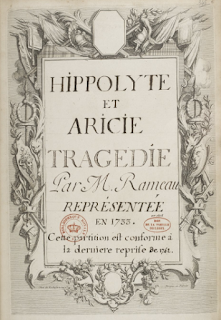Offenbach - Le Voyage dans la Lune
Opéra Comique, Paris, Friday February 3 2023
Conductor: Alexandra Cravero/ Production & Costumes: Laurent Pelly. Production reprised by: Héloïse Sérazin. Sets: Barbara de Limburg. Lighting: Joël Adam. Le roi V’lan: Franck Leguérinel. Le prince Caprice: Arthur Roussel. La princesse Fantasia: Ludmilla Bouakkaz. Microscope: Mateo Vincent-Denoble. Le roi Cosmos: Enzo Bishop. Flama: Violette Clapeyron. Popotte: Rachel Masclet. Cactus: Micha Calvez-Richer. Demoiselles d'Honneur: Salomé Baslé, Justine Chauzy Le Joly, Judith Gasnier, Airelle Groleau, Maxence Hermann. Maîtrise Populaire de l'Opéra Comique. Orchestre Les Frivolités Parisiennes.
 |
| Photos: Stefan Brion, Opéra Comique |
I've sometimes been known to complain that, based on scraps of conversation overheard in the foyer, some people show up at the opera house with only the vaguest idea, if any, of what they're going to see. On Friday, the arroseur was arrosé: I hadn't paid enough attention when booking, though I'd been surprised the seats were so cheap, and, later, wondering what time we'd be out for dinner, that the duration given on the website was only just over two hours, including the interval. Favart, when we arrived, was full of families, calling and waving to one another from box to balcony and back, as if everyone knew each other except us. What was going on?
This production of Offenbach's Le Voyage dans la Lune, directed by Laurent Pelly, is in fact a student one, showcasing pupils and recent graduates from the Opéra Comique's own stage school, the Mâitrise Populaire. It's one of many productions hit by Covid: it was originally performed to an empty house, for cameras only, but the Opéra Comique rescheduled it for the current season, and as Friday was the last night, friends and family were all there to cheer the youngsters (and Offenbach veteran Franck Leguérinel, the 'ringmaster' of the show) on.
Pelly's production is simple, with two basic sets: the Earth, a multicoloured lunar (yes) landscape made of crushed plastic waste, cracking loudly underfoot, and the Moon, a virgin white space. The earthlings are regiments of grey-suited Efficient Baxters in specs, glued to their smartphones and selfies, expertly and impeccably choreographed. Leguérinel is a hilarious, gangling king, all arms and wild hair. His son, Caprice, is a youth (not a soprano, as scored by Offenbach) in an orange suit over a hoodie and spangled trainers, Microscope a nerd in socks and sandals. The action fizzes along, the giant cannon is brought on and fired, and we find ouselves on the moon, where everything is white: the set, the king's spherical costume, the space and Sputnik-inpired costumes and headgear - all planets, moons, satellites and orbits - of princess Fantasia and the chorus. (Funnily, these costumes brought to mind a cake Fauchon used to make, called 'Caractic' - telescoping 'caramel' and 'galactic', I suppose - back in the days when Fauchon was still a place you could safely shop at. It was similarly white and spherical, with silvery 'growths' or accretions.)
It's a fun, enthusiastic, well-rehearsed, performance, but severely abridged, so not exactly what I thought I was going to see. I probably, at the time of booking, assumed the production had something to do with the Palazzetto Bru Zane's recent recording, but no; as I now know, that was the object of a different staging, by Olivier Fredj, in Monpellier (also hit by Covid). Apart from the ever-excellent Guérinel, the singers were all very young. Their spirit was engagingly willing, they oozed commitment and charm, talent and promise, and we were all, friends and family or not, rooting for them, but I think I'll leave any comment on the individual voices for another occasion, when they've finished their schooling and matured into professional performers.




Comments
Post a Comment